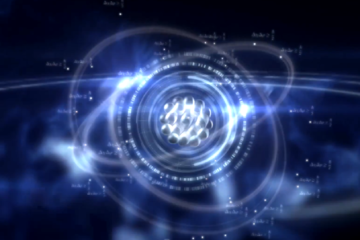
Quantum computers — computers that use quantum mechanics to store data and make computations — have the potential to be much faster and more powerful than classical computers, scientists believe.
 Quantum computers — computers that use quantum mechanics to store data and make computations — have the potential to be much faster and more powerful than classical computers, scientists believe.
Quantum computers — computers that use quantum mechanics to store data and make computations — have the potential to be much faster and more powerful than classical computers, scientists believe.
But making a quantum computer is easier said than done. That's why a new paper by scientists at the University of Southern California and defense contractor Lockheed Martin is so significant: They have devised a method to determine whether a quantum computing processor is indeed using quantum mechanics to perform its calculations.
This particular experiment was conducted using a quantum optimization processor with 108 qubits — the quantum equivalent of the classical "bit," the most basic unit of information that computers use to store data.
The chip, nicknamed Rainier, was made by a Canada-based manufacturing company called D-Wave that specializes in quantum computing.
During the course of the experiment, the USC scientists took various groups of 8 qubits from the chip's 108 and tested them together.
The experiment confirmed that Rainier was functioning in a way that was consistent with quantum mechanics and inconsistent with classical mechanics. In other words, a classical understanding of computation was unable to explain the way this chip was operating.
When scientists refer to things as "classical" or "quantum," they're referring to two different approaches to physics. "Classical" refers to the conception of physics based on Newton's laws of motion.
In the late 19th and early 20th century, physicists began to realize that Newtonian, or classical physics, didn't apply to certain particles, particularly particles operating at an extremely small scale.
At this scale, scientists believe, particles don't have precise speeds or locations. Instead of a precise data set, the particle has a series of probable speeds and locations, called a wave function.
Quantum computing is about applying these principles to computation.

 Previous page
Previous page Back to top
Back to top







